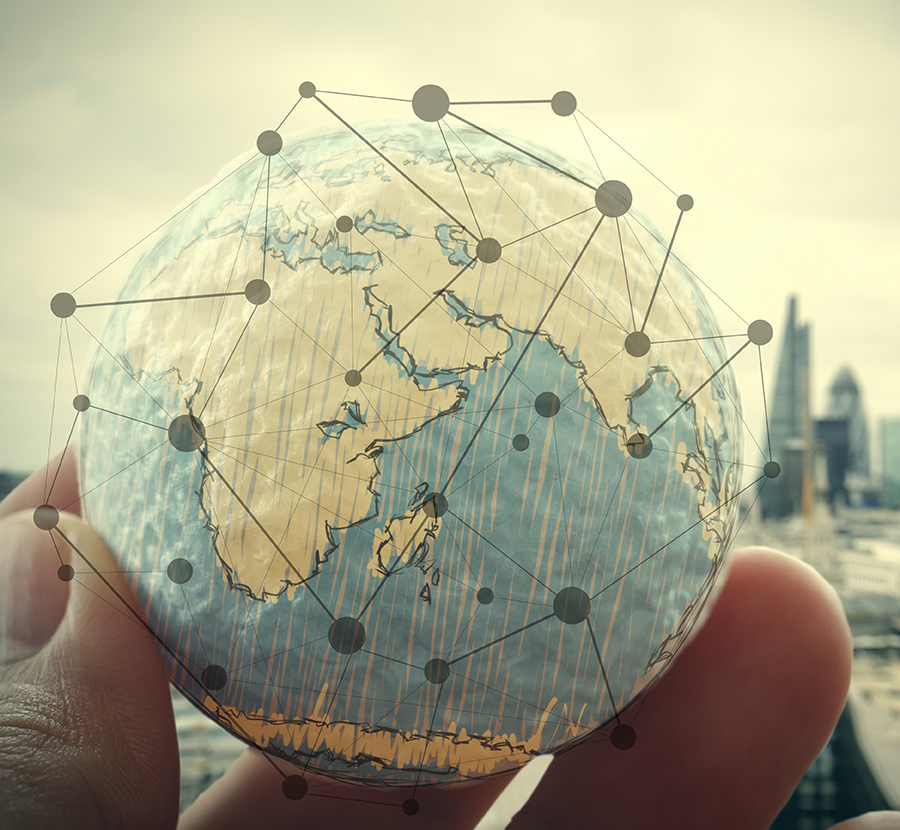Rising protectionism and fragmentation are jeopardising the potential of trade to promote sustainable development objectives, new research shows.
Released this week, the 2023 edition of the Hinrich-Institute for Management Development (IMD) Sustainable Trade Index (STI) finds evidence of “slowbalisation” amid rising geopolitical tensions, increasing protectionism and shifting global supply chains – making it harder for countries to harness the positive elements of trade while mitigating the negative.
“The global trade system is experiencing fragmentation that threatens to erode the achievements of 70 years of globalisation,” says Kathryn Dioth, CEO of the Hinrich Foundation. “Protectionist trade policies are being implemented under the guise of responding to the headwinds of post-pandemic inflation and geopolitical tensions.”
“With global trade challenged by geopolitical and health issues, the work of streamlining supply chains and reducing costs has become paramount, even at the expense of social or environmental considerations in global trade. Our index sheds light on how this trade-off is being played out,” adds Arturo Bris, director of the IMD’s World Competitiveness Center.
Published annually, the index measures the readiness and capacity of 30 nations to participate in the international trading system in a manner that supports the long-term goals of economic growth, environmental protection and societal development. Scores are determined by averaging each economy’s performance across 71 individual indicators.
This year’s results show that the world’s largest economies, which are best placed to lead efforts to reverse slowbalisation, are instead among the key countries that are raising tariffs and non-tariff barriers, and slowing trade liberalisation.
Meanwhile, among smaller trading nations, the STI finds negative changes have emerged in societal indicators such as forced labour and trade in goods at risk of modern slavery, as well as environmental indicators such as energy intensity. These developments pose challenges to how global trade can be leveraged to achieve positive outcomes for human and natural capital, the index’s authors say.
“We must be cognisant of the challenges that global trade is facing,” says Chuin Wei Yap, the Hinrich Foundation’s international trade research programme director. “The STI is a blueprint of how we see the world and how we see policy as managing, in equal parts, the huge accelerative benefits of trade along with its potentially quite devastating effects on society.”
Of the 30 trading economies studied for the index, the two that managed to achieve this balance were, for the second year in a row, New Zealand and the UK, which place first and second in the overall index ranking.
Across the three main pillars of environmental, societal and economic indicators, New Zealand remained at the top for environmental considerations in trade, driven by its outstanding performance in air pollution (first), environmental standards in trade (first), and share of natural resources in trade (second). The UK comes second in this pillar, although places first overall on the environmental standards in trade metric.
Canada holds the top position in the societal pillar for 2023, up from second place last year. The rise is rooted in its continuously robust performance in labour standards, social mobility, and evenness in economic development, although there is some room for improvement: its lowest ranking in this pillar is in trade in goods at risk of modern slavery (15th) which is driven by its import of goods at risk (24th). Myanmar remained at the bottom of the rankings in this pillar. The stagnation in the country’s performance in the pillar is largely the result of declines in metrics relating to political stability and the absence of violence, a rising risk of goods produced by forced labour or child labour, and trade in goods at risk of modern slavery.
Singapore takes the top spot in the economic pillar of the index, moving up from second place in 2022. Hong Kong, which held first place last year, has fallen to third in the ranking, with the decline stemming from issues such as export concentration, rising tariff and non-tariff barriers and monetary policy intervention. Sri Lanka has dropped to the bottom of the ranking from 26th last year in this pillar due to feeble performance in consumer price inflation, real GDP growth and trade liberalisation.
In last place overall in the sustainable trade index is Russia, which ranks 25th in the economic pillar, 24th in the societal pillar and 30th in the environmental pillar.
“At the Hinrich Foundation, we believe global trade is an essential ingredient for economic growth. But for trade to be sustainable, its economic, societal and environmental outcomes must be in balance,” says Dioth. The Hinrich Foundation is calling for “prompt dialogue” about the future direction of trade policy to set the world back on a path of sustainable globalisation.
This is the latest call for action to stem the tide of fragmentation in trade.
The World Trade Organization’s (WTO) World Trade Report 2023, published in September, warned of the emergence of “a more fragmented world dominated by regional trade blocs” as growing hostility between the US and China results in a “tit-for-tat escalation of import tariffs”, and policymakers turn to trade restrictions to ensure food security in the wake of Russia’s invasion of Ukraine.
Meanwhile, earlier this month, WTO director-general Ngozi Okonjo-Iweala called for WTO members to “seize the opportunity to strengthen the global trading framework by avoiding protectionism and fostering a more resilient and inclusive global economy”, adding that, for the world’s poorest countries, economic recovery will not be possible without a stable, open, predictable, rules-based and fair multilateral trading system.







